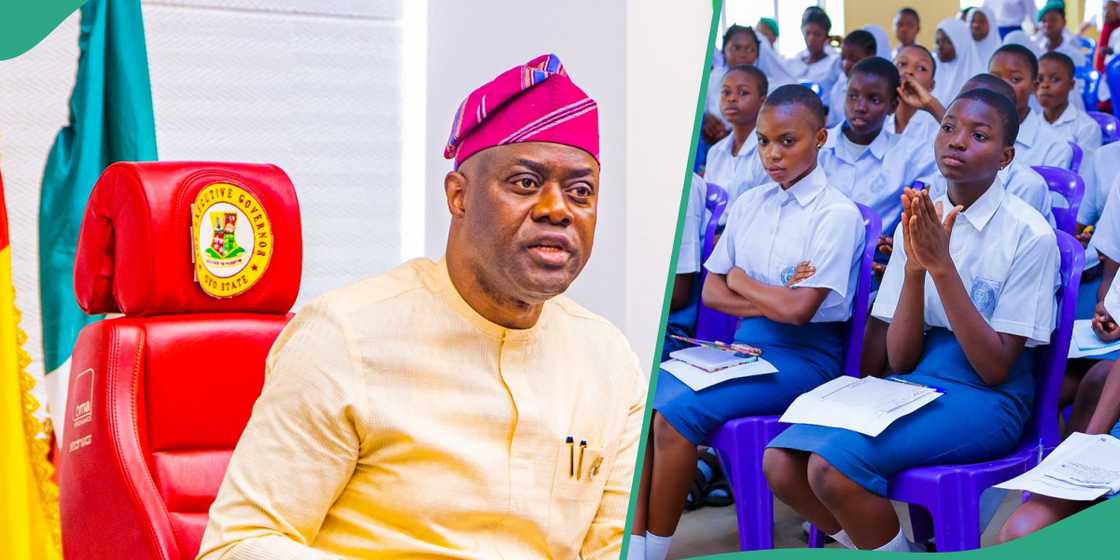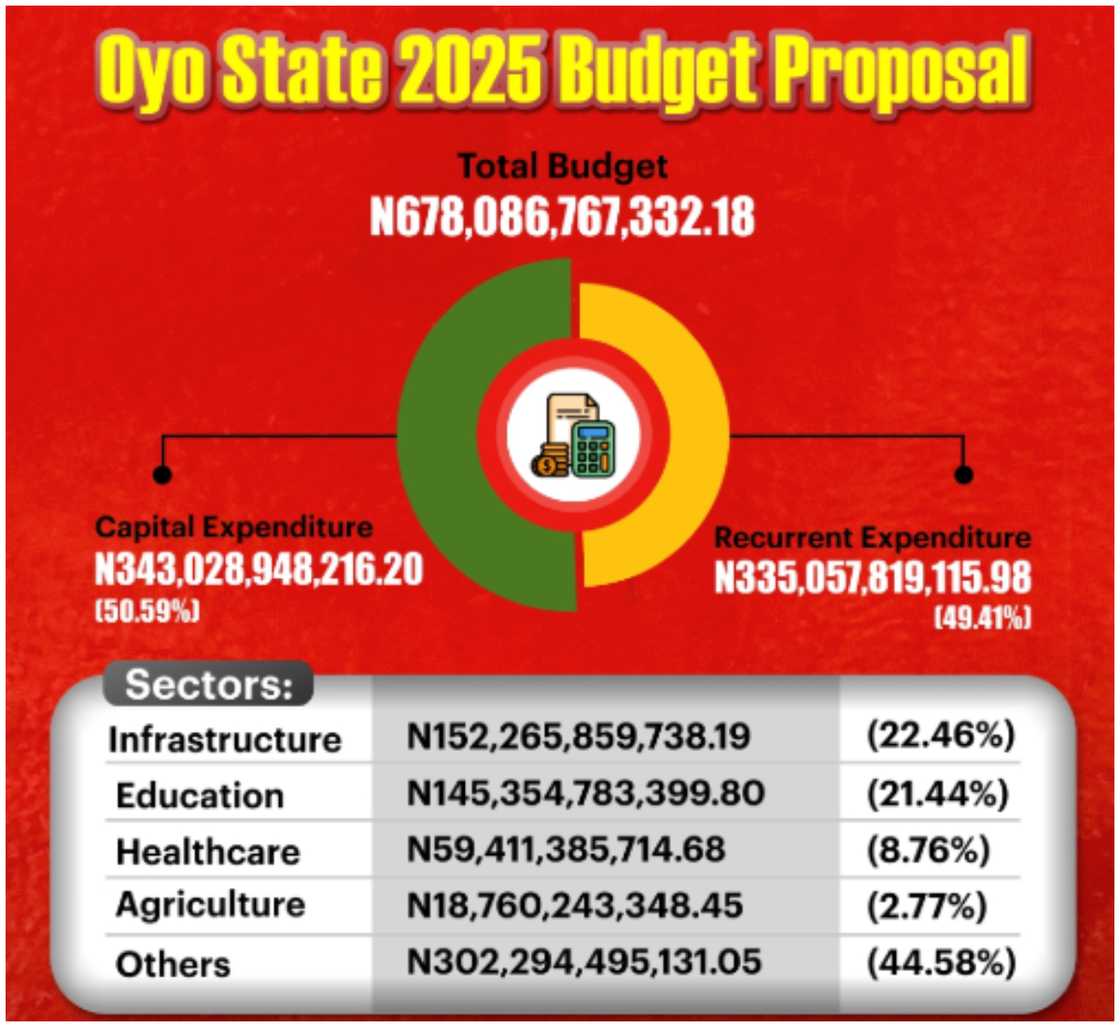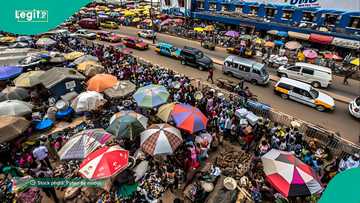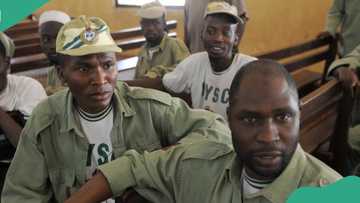The Neglected Seeds: How Oyo State 2025 Budget Perpetuates Inequalities in Education
- Nigeria accounts for 20% of all out-of-school children in sub-Saharan Africa, with an estimated 20 million out-of-school children
- In Oyo, the nonchalant attitude of parents towards education, the negative influence of broken homes, and isolated gender-responsive budgeting (GRB) of the state government hinder girls’ ability to complete their schooling
- Across Africa, country-specific evidence shows that GRB helps deliver access to services that enhance better outcomes for girls, boys, and excluded groups in education; however, Oyo state seems to be slumbering
Legit.ng journalist, Ridwan Adeola Yusuf, has over 5 years of experience covering gender issues and basic education in West Africa.
Ibadan, Oyo state - Metaphorically, to “sow a seed" stresses the importance of investing in the education and well-being of young females, as their development benefits society as a whole. However, in Nigeria’s southwest Oyo state, girls do not genuinely matter to the Seyi Makinde-led government—at least going by its 2025 budget.
When Governor Makinde signed the Oyo 2025 Appropriation Bill into law on Monday, December 23, 2024, the education sector received the second-largest allocation, with a budget of N149,600,077,216.90. Earlier, in March 2024, the governor had asserted that his administration attaches importance to Oyo state's development in education "because it is the driver for development".

Source: Facebook
As laudable as the investment appears, Legit.ng’s studious scrutiny has uncovered that when it comes to basic education in the state, there is a total absence of a budgeting action plan for addressing challenges in girl-child education.

Source: Original
This reporter perused the 923-paged Oyo state 2025 approved budget and found that while gender lens was slightly applied to persons with disabilities, activities of the sports council, and First Technical University, Ibadan, the actual expenditure on girls of primary and secondary school age as compared to on boys was patently missing.

Source: Original
In the ‘Total Expenditure by Programme’ (sector, objective, and programme) segment, N107,284,213,562.15 was allotted for ‘equity and inclusiveness in the provision of educational services’. There were subdivisions like ‘Inclusive Education’ and ‘gender’. But, the plan did not consider the different needs and priorities of schoolgirls.
Oyo state lagging in proper education planning
Oyo state lacks a running education sector plan (ESP) and neither is its blueprint for the sector gender-responsive, thus authorities are not integrating gender-focused strategies into their planning processes. The absence of a gender-responsive ESP has led to the prevalence of teenage pregnancy, which affects student retention and completion rates.
UNICEF's 2021 Multiple Indicator Cluster Survey (MICS-6) revealed that 3.4 percent of girls married before 15 years, while 13.2 percent married before 18 years in Oyo state. Apart from child marriage, girls in the state also suffer human rights violations like sexual assault, female gender mutilation (FGM), and child labour.
A teacher in one of the state government-owned schools in Okeho, the headquarters of Kajola local government, disclosed that girls and boys of secondary school age were often on farms, picking cashews. This, the tutor noted, negatively affected education in the area.
“In fact, some students stopped coming to school during the last West African Examinations Council (WAEC) and we had to visit their houses to speak with their parents and persuade them to return just for the exam," the teacher told Legit.ng amid concern. “We found out that for three girls among the truant students, the main reason they stopped coming was because they discovered unplanned pregnancies. Cases like that are not uncommon in schools in Okeho."
Education gender-responsive budgeting and financing for girls' education
Establishing sustainable budgeting and financing mechanisms to support girls’ education at the state level is essential.
According to a report published by Invictus Africa, an Abuja-based non-profit organisation (NGO) that promotes gender equality, by applying a gender lens to budgeting, states can ensure that financial resources are allocated equitably to initiatives that improve access and quality of education for girls.
A gender issue is a statistical or social indicator of inequality between males and females arising from societal discrimination or marginalisation. A gender-blind budget like Oyo's worsens—rather than improves—gender inequalities because it oftentimes does not address the gender-specific factors that perpetuate gender inequality.
Invictus Africa, the civil society organisation, noted that gender inequality in schools manifests in various ways, including unequal access to education, discriminatory treatment, and gender-based stereotypes that affect learning and participation. A gender-responsive budget or a gender-sensitive budget identifies gender issues, and resources are allocated taking into account these issues.
As a strategic approach, gender-responsive budgeting (GRB) systematically integrates gender equality objectives into government policy, planning, budgeting, monitoring, evaluation, and audits. It ensures that males and females benefit equally from government resources by highlighting the distributive impacts of the budget (revenue and expenditure) on both genders and adjusting or reallocating available resources when one gender or group is more disadvantaged. GRB helps in formulating, approving, implementing, monitoring, and auditing the government budget to ensure the budget is responsive to the needs of both girls and boys. Aiming for both gender and fiscal justice, GRB analyses the impact of government budgets on different groups of people to enable the transformation of those budgets so they can contribute to achieving gender equality commitments.
Gender-responsive education budgeting (GREB) as a subset of GRB ensures the application of gender mainstreaming in education budgeting processes and outcomes. With it, gender-related issues that impede the access of girls and boys to education are effectively considered and addressed through government revenues and expenditures.
Being that GREB adopts gender equality principles to ensure equitable access, the Oyo state government must not underestimate its significance.
Coalition advocates 12 years of free education for girls
Meanwhile, a coalition of non-governmental organisations (NGOs) working to raise awareness on girl–child education in the country, has advocated 12 years of free, safe and quality education for school-age girls.
The coalition, the National Working Group on Basic and Senior Secondary Education, said by doing so, the country would be taking significant steps towards a brighter future for all Nigerians.
This report was published with collaborative support from ImpactHouse Centre for Development Communication and System Strategy and Policy Lab (SSPL).
PAY ATTENTION: Сheck out news that is picked exactly for YOU ➡️ find the “Recommended for you” block on the home page and enjoy!
Source: Legit.ng







